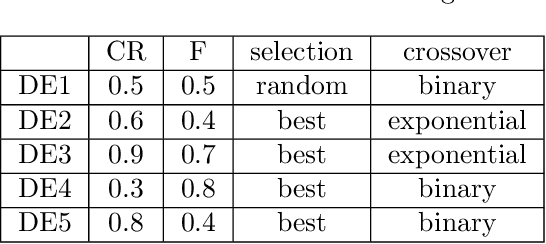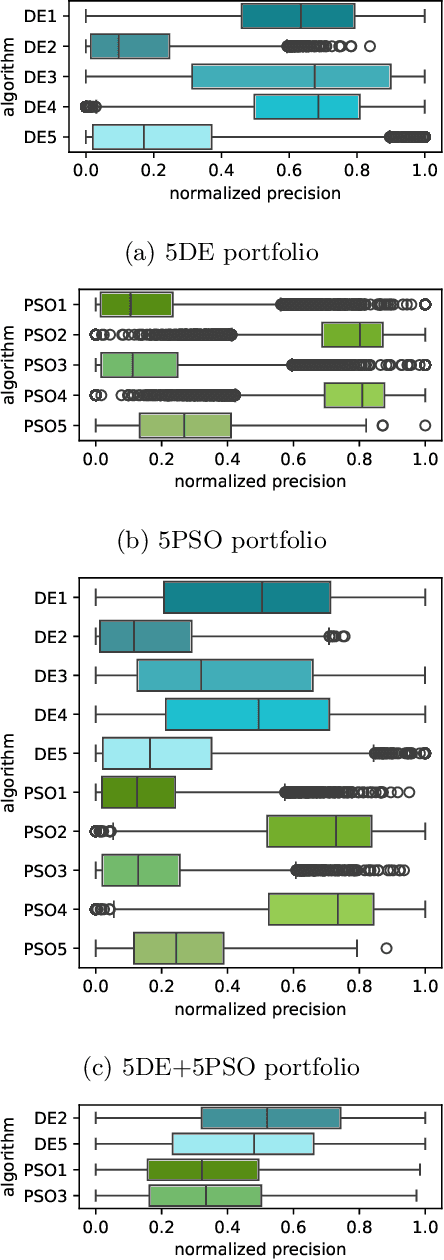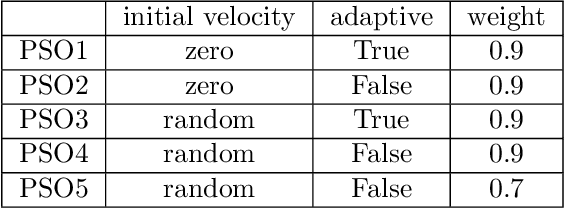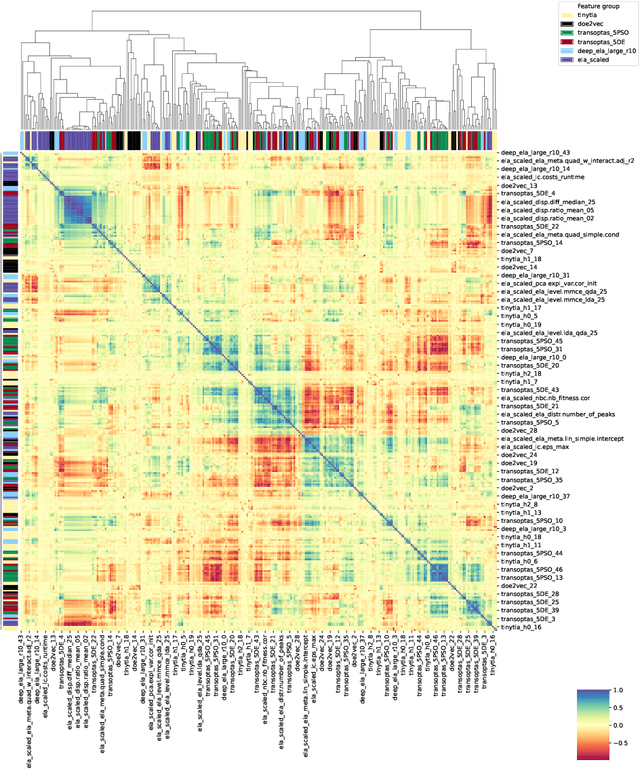Moritz Seiler
LLM Driven Design of Continuous Optimization Problems with Controllable High-level Properties
Jan 26, 2026Abstract:Benchmarking in continuous black-box optimisation is hindered by the limited structural diversity of existing test suites such as BBOB. We explore whether large language models embedded in an evolutionary loop can be used to design optimisation problems with clearly defined high-level landscape characteristics. Using the LLaMEA framework, we guide an LLM to generate problem code from natural-language descriptions of target properties, including multimodality, separability, basin-size homogeneity, search-space homogeneity and globallocal optima contrast. Inside the loop we score candidates through ELA-based property predictors. We introduce an ELA-space fitness-sharing mechanism that increases population diversity and steers the generator away from redundant landscapes. A complementary basin-of-attraction analysis, statistical testing and visual inspection, verifies that many of the generated functions indeed exhibit the intended structural traits. In addition, a t-SNE embedding shows that they expand the BBOB instance space rather than forming an unrelated cluster. The resulting library provides a broad, interpretable, and reproducible set of benchmark problems for landscape analysis and downstream tasks such as automated algorithm selection.
Landscape Features in Single-Objective Continuous Optimization: Have We Hit a Wall in Algorithm Selection Generalization?
Jan 29, 2025



Abstract:%% Text of abstract The process of identifying the most suitable optimization algorithm for a specific problem, referred to as algorithm selection (AS), entails training models that leverage problem landscape features to forecast algorithm performance. A significant challenge in this domain is ensuring that AS models can generalize effectively to novel, unseen problems. This study evaluates the generalizability of AS models based on different problem representations in the context of single-objective continuous optimization. In particular, it considers the most widely used Exploratory Landscape Analysis features, as well as recently proposed Topological Landscape Analysis features, and features based on deep learning, such as DeepELA, TransOptAS and Doe2Vec. Our results indicate that when presented with out-of-distribution evaluation data, none of the feature-based AS models outperform a simple baseline model, i.e., a Single Best Solver.
Promises and pitfalls of deep neural networks in neuroimaging-based psychiatric research
Jan 20, 2023



Abstract:By promising more accurate diagnostics and individual treatment recommendations, deep neural networks and in particular convolutional neural networks have advanced to a powerful tool in medical imaging. Here, we first give an introduction into methodological key concepts and resulting methodological promises including representation and transfer learning, as well as modelling domain-specific priors. After reviewing recent applications within neuroimaging-based psychiatric research, such as the diagnosis of psychiatric diseases, delineation of disease subtypes, normative modeling, and the development of neuroimaging biomarkers, we discuss current challenges. This includes for example the difficulty of training models on small, heterogeneous and biased data sets, the lack of validity of clinical labels, algorithmic bias, and the influence of confounding variables.
Deep Learning as a Competitive Feature-Free Approach for Automated Algorithm Selection on the Traveling Salesperson Problem
Jun 29, 2020



Abstract:In this work we focus on the well-known Euclidean Traveling Salesperson Problem (TSP) and two highly competitive inexact heuristic TSP solvers, EAX and LKH, in the context of per-instance algorithm selection (AS). We evolve instances with 1,000 nodes where the solvers show strongly different performance profiles. These instances serve as a basis for an exploratory study on the identification of well-discriminating problem characteristics (features). Our results in a nutshell: we show that even though (1) promising features exist, (2) these are in line with previous results from the literature, and (3) models trained with these features are more accurate than models adopting sophisticated feature selection methods, the advantage is not close to the virtual best solver in terms of penalized average runtime and so is the performance gain over the single best solver. However, we show that a feature-free deep neural network based approach solely based on visual representation of the instances already matches classical AS model results and thus shows huge potential for future studies.
Enhancing Resilience of Deep Learning Networks by Means of Transferable Adversaries
May 27, 2020



Abstract:Artificial neural networks in general and deep learning networks in particular established themselves as popular and powerful machine learning algorithms. While the often tremendous sizes of these networks are beneficial when solving complex tasks, the tremendous number of parameters also causes such networks to be vulnerable to malicious behavior such as adversarial perturbations. These perturbations can change a model's classification decision. Moreover, while single-step adversaries can easily be transferred from network to network, the transfer of more powerful multi-step adversaries has - usually -- been rather difficult. In this work, we introduce a method for generating strong ad-versaries that can easily (and frequently) be transferred between different models. This method is then used to generate a large set of adversaries, based on which the effects of selected defense methods are experimentally assessed. At last, we introduce a novel, simple, yet effective approach to enhance the resilience of neural networks against adversaries and benchmark it against established defense methods. In contrast to the already existing methods, our proposed defense approach is much more efficient as it only requires a single additional forward-pass to achieve comparable performance results.
 Add to Chrome
Add to Chrome Add to Firefox
Add to Firefox Add to Edge
Add to Edge